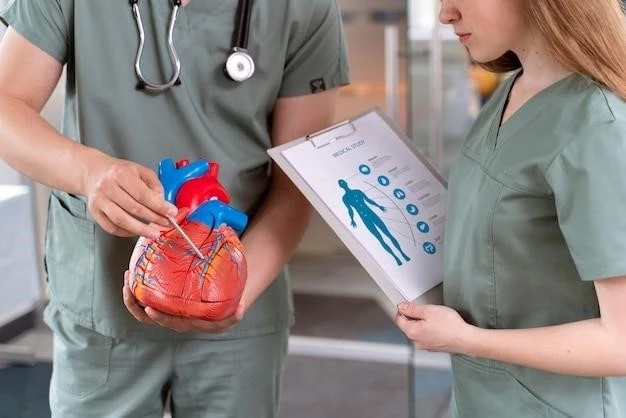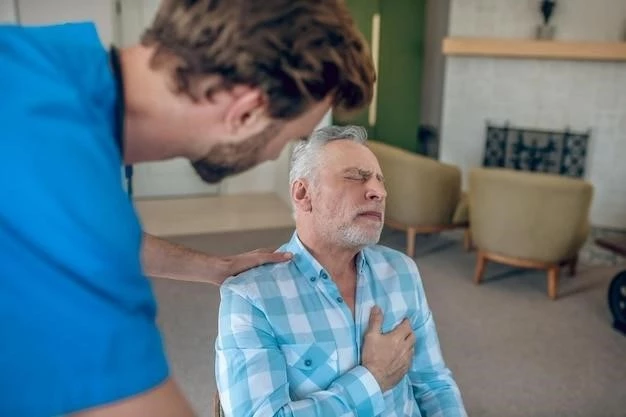Understanding Coronaro-Cardiac Fistula
Causes of Coronaro-Cardiac Fistula⁚ Understand that this condition is typically congenital‚ resulting from abnormal connections between coronary arteries and heart chambers. It can also be acquired due to trauma or certain heart conditions.
Causes of Coronaro-Cardiac Fistula
Coronaro-cardiac fistula is typically caused by a congenital anomaly where coronary arteries connect abnormally to heart chambers. This abnormality can result from genetic factors. Additionally‚ acquired causes may include trauma‚ certain heart conditions like atherosclerosis‚ or complications from cardiac procedures. It is important to consult with a healthcare professional for a comprehensive evaluation and understanding of the specific cause in individual cases.
Symptoms and Diagnosis of Coronaro-Cardiac Fistula
Recognizing the symptoms of Coronaro-cardiac fistula is crucial for timely diagnosis and treatment; Symptoms vary depending on the size and location of the abnormal connection between the coronary artery and heart chamber. Common symptoms may include chest pain‚ palpitations‚ shortness of breath‚ and fatigue. Diagnosis involves a combination of imaging tests such as echocardiogram‚ cardiac MRI‚ and coronary angiography to visualize the abnormal connection and assess its impact on heart function. It is essential to seek medical attention if experiencing any concerning symptoms to receive a prompt and accurate diagnosis.

Treatment Options for Coronaro-Cardiac Fistula
When it comes to treating Coronaro-cardiac fistula‚ the approach depends on factors such as symptoms‚ the size of the fistula‚ and its impact on heart function. Treatment options may include observation if the condition is asymptomatic‚ medication to manage symptoms such as chest pain and abnormal heart rhythms‚ or catheter-based procedures to close the abnormal connection. In more complex cases‚ surgical intervention may be necessary to repair the fistula and restore normal blood flow. It is important to work closely with a cardiac specialist to determine the most suitable treatment plan based on individual circumstances.
Complications of Coronaro-Cardiac Fistula
Coronaro-cardiac fistula can lead to various complications if left untreated or poorly managed. These complications may include heart failure‚ arrhythmias‚ infective endocarditis‚ myocardial infarction‚ or pulmonary hypertension. It is essential to monitor and address any potential complications promptly to prevent further heart damage and improve overall prognosis. Working closely with a healthcare team‚ including cardiologists and cardiac surgeons‚ can help address complications effectively and ensure the best possible outcome for individuals with Coronaro-cardiac fistula.
Prognosis for Patients with Coronaro-Cardiac Fistula
Understanding the prognosis for patients with Coronaro-cardiac fistula is important. The outlook varies based on factors such as the size and location of the fistula‚ symptoms‚ underlying heart condition‚ and treatment received. With timely diagnosis and appropriate management‚ many individuals with Coronaro-cardiac fistula can lead a normal‚ healthy life. Regular follow-ups with a healthcare team are crucial to monitor the condition‚ address any potential complications‚ and ensure optimal long-term outcomes. It is advised to discuss individual prognosis with a healthcare provider for personalized information and care.
Surgical Interventions for Coronaro-Cardiac Fistula
When surgical intervention is necessary for Coronaro-cardiac fistula‚ procedures aim to repair the abnormal connection between the coronary artery and heart chamber. Surgical options may include open-heart surgery to close the fistula using sutures or patches‚ or minimally invasive techniques such as catheter-based closure procedures. The choice of surgical approach depends on factors like the size and location of the fistula‚ overall health status‚ and individual patient considerations. It is essential to consult with a cardiac surgeon to discuss the most suitable surgical intervention based on the specific characteristics of the Coronaro-cardiac fistula.
Management of Coronaro-Cardiac Fistula in Pediatric Patients
Managing Coronaro-cardiac fistula in pediatric patients requires expertise and a tailored approach to address unique needs. Treatment options may involve a combination of medication‚ monitoring for symptom progression‚ and considering surgical interventions if necessary. Regular follow-ups with pediatric cardiologists are essential to track the progression of the condition‚ evaluate heart function‚ and ensure appropriate management. It is crucial for parents or caregivers of pediatric patients with Coronaro-cardiac fistula to work closely with a multidisciplinary medical team to provide comprehensive care and support for the child’s heart health.
Research Advancements in Coronaro-Cardiac Fistula Treatment
Continuous research in Coronaro-cardiac fistula treatment aims to improve outcomes and enhance patient care. Advancements include innovative imaging techniques for accurate diagnosis‚ novel catheter-based procedures for minimally invasive interventions‚ and development of targeted therapies to manage symptoms and prevent complications. Clinical trials also play a vital role in exploring new treatment modalities and enhancing existing strategies. Staying informed about the latest research advancements can help healthcare providers offer the best possible care options to individuals with Coronaro-cardiac fistula. It is recommended to collaborate with healthcare professionals involved in cutting-edge research to access advanced treatment approaches and contribute to the progress in managing this condition.
